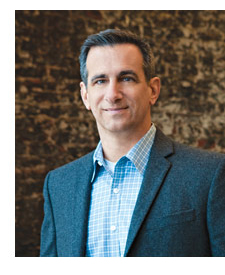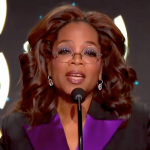Why did you seek a leadership role at an HIV/AIDS organization?
HIV/AIDS is a topic that has resonated with me for decades. I remember the initial fear and stigma that we all felt when we saw the cover of People featuring Rock Hudson. The uncertainty caused by friends getting sick and dying followed by the mourning [really impacted me] as I moved toward being open about my sexual orientation.
 |
One of the moments that solidified my caring about HIV/AIDS was in 1991. I was a closeted city council member in Tempe, Arizona. A high school friend had just passed away in Philadelphia from AIDS. I went to his funeral and visited with his family; it was one of many that I would attend. Then, not long ago, I got a Facebook message from a fellow I casually dated years ago. He recently tested HIV positive. So those are the bookends. HIV/AIDS has affected people close to me for a long, long time.
One of the other things that attracted me to this role is that it is a very hopeful time. It is still a time of great challenges, but there are great opportunities with new treatments and the ability to use new technology to reach constituencies that we might not have been able to reach as well in the past. If I didn’t believe that the San Francisco AIDS Foundation (SFAF) could make a difference, then there would be no need for me to be here.
Tell us about SFAF’s “End of AIDS” campaign.
We plan to cut HIV cases in San Francisco in half by 2015 by making sure more people know their status and making sure HIV-positive people have access to care.
Looking at the history of fighting this disease for 30 years [and considering how the affected populations have grown and become more diverse], we know we have to have a variety of messages and a variety of ways to deliver those messages. We’re delivering messages to a broad audience, including policy makers and our constituents.
I don’t know that what we’re planning for San Francisco can be replicated in other parts of the country. What we do know is that we all have to keep trying new things.
In 2010, Congress passed the repeal of Don’t Ask, Don’t Tell, a law that prohibited LGBT people from serving openly in the military. Do you have reason to believe Congress will enact laws in 2011 that will protect LGBT people and/or people with HIV/AIDS?
The end of Don’t Ask, Don’t Tell was a seminal moment. We will start seeing the culture rapidly change even more over the next four to eight years. It won’t happen immediately because of this Republican Congress, but it will happen.
Based on my experience, my sense is there won’t be very many [new laws passed] this year, especially focusing on LGBT issues. Having said that, it’s interesting to see the evolution that has taken place in just the past few years of high profile Republicans who now say they support equality for LGBT people. There will always be anti-LGBT voices, but their influence [hopefully] will continue to wane [as the community keeps the heat on].
There’s an unexpected upside: Since LGBT issues likely won’t be [front and center] in the Republican-controlled House of Representatives, there won’t be a lot of opportunity for antigay rhetoric. That gives us [a chance] over the next few years to quietly build relationships with Republican allies.
You’re now a Democrat, but you were an openly gay Republican elected official in Arizona. You had a prominent role in the state’s political culture. What are your thoughts on the shootings in Tucson, which almost killed U.S. Representative Gabrielle Giffords and killed six people and wounded 14 others?
Arizona has challenges like every place. However, we can’t paint a picture of an entire group of people in one state with a broad brush as a result of a tragedy.
I’m still hopeful that a vast majority of people in Arizona are good, decent people who believe that everyone should be treated fairly. We haven’t always won those arguments at the ballot box in Arizona, but we are beginning to win those battles in the hearts and minds of the people in Arizona.
[Society] has evolved, and the culture has changed in regard to the way that society interacts with both people who are HIV positive and people who are LGBT, and that’s a good thing.
How will SFAF mark the 10th anniversary of AIDS/LifeCycle?
AIDS/LifeCycle takes place June 5 to 11. The seven-day bike ride begins in San Francisco and ends in Los Angeles. It’s coproduced by SFAF and the L.A. Gay & Lesbian Center.
We’re hopeful this will be a record-breaking year for this event in fund-raising. It will be the 30th anniversary of the first reported AIDS cases. That fact in combination with the 10th anniversary of the ride will make it an amazing journey. I’m excited to be on the ride with all of the people who are participating—with those who have done all 10 rides and those who, like myself, will be doing it for the first time.
Tell us about your upcoming memoir.
The premise of the book stems from my work with GLAAD. I’m just a guy who’s telling my story, and telling our stories is what helps change hearts and lives.
My memoir will be a lot like many other stories, but I am going to tell my story from the standpoint of where I came from, how I grew up, how I challenged myself, how I was challenged by others and how I was able to succeed with the help of other people.
Hopefully the book will do some good things for issues that I have really cared about over the course of my public life. The publisher and the publication date are still to be determined.
Historically, SFAF has been a powerhouse in AIDS advocacy in America. Where will you take SFAF?
Without a doubt, SFAF is in a position of influence from an advocacy standpoint. There are a lot of people in San Francisco counting on us to fill that role. That is something that I have a strong background in, and I am very committed to it. I want to ensure that our advocacy is nothing but the best that it can be.
Despite all of the good news lately on HIV/AIDS prevention and treatment, we have to remember that there are anywhere between 800 and 1,000 new HIV cases in San Francisco every year. SFAF has a responsibility to do more on HIV prevention.






2 Comments
2 Comments